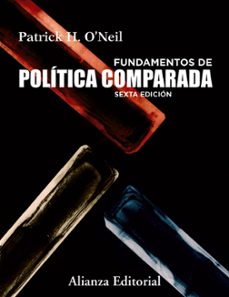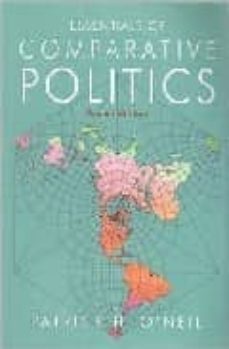Imprescindibles
Más vendidos Libros más leídos eBooks más leídos Todos los libros Todos los libros Autores destacados Series y sagas
Recomendados Libros recomendados Autores destacados Libros que inspiran Vidas con historia LGTBIQ+ English books
Ficción
Literatura Contemporánea Estudios literarios Clásicos Cuentos Poesía Teatro Libros de bolsillo Sagas literarias
Géneros literarios Novela romántica y erótica Novela negra Novela histórica Narrativa fantástica Novela de ciencia ficción Novela de terror Narrativa de humor Narrativa de viajes
No Ficción
Ciencias y tecnología Biología Ciencias Ciencias naturales Divulgación científica Informática Ingeniería Matemáticas Medicina Salud y dietas Formación Idiomas Estilo de vida Libros de Cocina Guías de viaje Narrativa de viajes Deportes Libros de Juegos Manualidades
Humanidades Autoayuda y espiritualidad Ciencias humanas Derecho Economía y Empresa Psicología y Pedagogía Filosofía Sociología Filología Biblioteconomía Estudios filológicos Estudios lingüísticos Estudios literarios Historia y crítica de la Literatura
Infantil
Juvenil
#Jóvenes lectores Narrativa juvenil Clásicos adaptados Libros Wattpad Libros Booktok Libros de influencers Libros de Youtubers Libros Spicy Juveniles Libros LGTBIQ+ Temas sociales Libros ciencia ficción Libros de acción y aventura Cómic y Manga Juvenil Cómic Juvenil Manga Shonen Manga Shojo Autores destacados Jennifer L. Armentrout Eloy Moreno Nerea Llanes Hannah Nicole Maehrer
Libros de fantasía Cozy Fantasy Dark academia Hadas y Fae Romantasy Royal Fantasy Urban Fantasy Vampiros y hombres lobo Otros Misterio y terror Cozy mistery Policiaca Spooky Terror Thriller y suspense Otros
Libros románticos y de amor Dark Romance Clean Romance Cowboy Romance Mafia y amor Romance dramatico Romance dramatico Romcom Sport Romance Otros Clichés Enemies to Lovers Friends to Lovers Hermanastros Slow Burn Fake Dating Triángulo amoroso
Cómic y Manga
Novela gráfica Novela gráfica americana Novela gráfica europea Novela gráfica de otros países Personajes, series y sagas Series y sagas Star Wars Superhéroes Cómics DC Cómics Marvel Cómics otros superhéroes Cómics Valiant
eBooks
Literatura Contemporánea Narrativa fantástica Novela de ciencia ficción Novela de terror Novela histórica Novela negra Novela romántica y erótica Juvenil Más de 13 años Más de 15 años Infantil eBooks infantiles
Humanidades Autoayuda y espiritualidad Ciencias humanas Economía y Empresa Psicología y Pedagogía Filosofía Historia Historia de España Historia Universal Arte Cine Música Historia del arte
Ciencia y tecnología Ciencias naturales Divulgación científica Medicina Salud y dietas Filología Estudios lingüísticos Estudios literarios Historia y crítica de la Literatura Estilo de vida Cocina Guías de viaje Ocio y deportes
PATRICK O NEIL
Recibe novedades de PATRICK O NEIL directamente en tu email
Filtros
Del 1 al 3 de 3
Alianza Editorial 9788413628950
Este manual investiga las ideas y cuestiones clave que conforman la disciplina de la política comparada: libertad vs. igualdad y cómo se reconcilian o equilibran esos ideales. A partir de ahí se abordan las instituciones basicas del poder -los estados, los mercados, las sociedades, las democracias y los regimenes no democraticos- y se analizan pormenorizadamente en los diversos sistemas politicos. La obra esta concebida de forma que proporcione al estudiante las herramientas basicas para comprender la dinamica politica del mundo y esta respaldada por una solida estructura pedagogica, con numerosas figuras, tablas, cronologias, listas de conceptos clave y recuadros.
Ver más
Tapa blanda
NORTON (W.W.) 9780393928761
of Comparative Politics supplies a framework that enables students to navigate and organize the material they will encounter in the courseand to make increasingly sophisticated comparisons between actual countries. In the first chapter, Patrick O''Neil explains the basic methodologies of comparative politics, discusses current issues and debates in the field, and introduces two themes that will inform the textthe importance of institutions to all political systems and the fundamental struggle between freedom and equality. The subsequent chapters are organized thematically, beginning with the basic concepts of politicsthe state, nations and society, and political economyand building to discussions of the challenges facing different types of political systems today. Throughout, Professor O''Neil incorporates analysis of the transformative events of recent historyamong them the fall of communism, the accelerating spread of democracy, the economic growth of Asia, globalization, and responses to the attacks of September 11th 2001.
Ver más
Otros
O NEIL, PATRICK y O NEIL, ELIZABETH
MORGAN KAUFMANN 9781558605800
Tapa blanda
Del 1 al 3 de 3



























